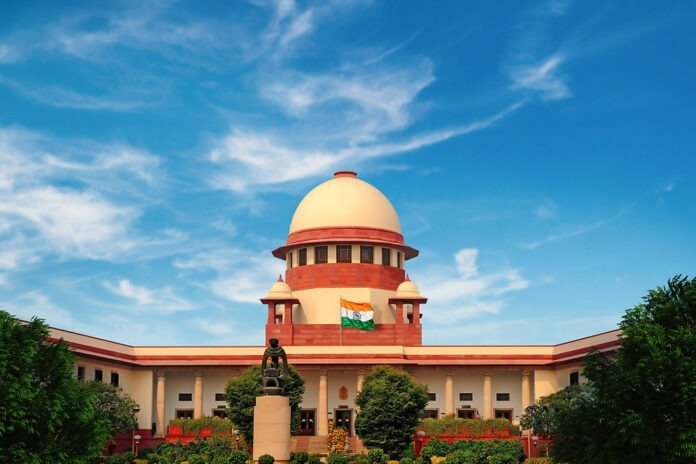Tamil Nadu calls the President’s Article 143 reference on bill assent timelines an “appeal in disguise,” citing a prior SC judgment. | The Legal Observer
Subheading (Intro Sentence):
In a constitutional tug-of-war, Tamil Nadu has challenged the maintainability of the President’s reference to the Supreme Court under Article 143 on the timelines for gubernatorial assent to Bills.
Tamil Nadu Moves to Block Presidential Query on Governors’ Delays
The Tamil Nadu Government has filed a strong objection before the Supreme Court against the maintainability of the President’s reference under Article 143 of the Constitution. The move challenges President Droupadi Murmu’s request for the Supreme Court’s opinion on timelines for granting assent to State Bills — a politically and legally sensitive subject, especially in light of recent standoffs between Governors and State Governments.
Describing the reference as an “appeal in disguise”, Tamil Nadu argued that the Supreme Court had already provided a detailed resolution to the matter in its recent judgment on the Tamil Nadu Governor’s delay in assenting to bills, which outlined clear timelines for constitutional authorities.
What Is Article 143 and Why It Matters
Article 143 of the Indian Constitution empowers the President to seek the opinion of the Supreme Court on questions of law or fact that are of public importance. While the Court’s opinion is advisory and non-binding, it holds significant moral and constitutional weight.
In this case, President Murmu referred questions concerning the lack of definitive timelines for Governors to grant, withhold, or return assent to Bills passed by State legislatures. The question has come into sharp focus following increasing instances of Governor-State confrontations, particularly in Opposition-ruled states like Tamil Nadu, Kerala, Punjab, and Telangana.
Tamil Nadu’s Legal Grounds: Prior Judgment Already Settles It
Tamil Nadu’s primary contention is that the matter has already been “directly answered” by the apex court. The five-judge Constitution Bench, in the recent Tamil Nadu judgment, ruled that Governors must act on Bills “as soon as possible”, and not in a manner that undermines the will of democratically elected legislatures.
The State has emphasized that the current Reference, rather than posing new legal questions, attempts to reopen settled issues, potentially diluting the impact of the Court’s earlier judgment.
Legal experts say Tamil Nadu’s stance reflects a deeper concern — that the Presidential reference could be used to reinterpret or soften the earlier ruling, especially amidst growing tensions between the Centre and certain states.
Political and Legal Implications
The Reference has become more than just a procedural question — it has emerged as a symbol of Centre-State federal tension. With multiple states complaining of deliberate delays by Governors in assenting to Bills, the outcome of this Reference could reshape the constitutional boundaries of gubernatorial powers.
Senior advocates familiar with the matter suggest that if the Court entertains the Reference, it may allow Governors to justify inaction through technicalities. On the other hand, if Tamil Nadu’s objection is upheld, it would reaffirm the supremacy of legislative will and safeguard the verdict in the earlier judgment.
Broader Federal Concerns at Play
This legal battle also invites a wider reflection on federalism and constitutional propriety. The framers of the Constitution envisioned Governors as neutral constitutional heads, not political functionaries. However, recent incidents — like the Tamil Nadu Governor’s alleged inaction on multiple Bills and controversial public remarks — have led to accusations of bias and prompted judicial scrutiny.
Tamil Nadu’s resistance to the Reference signals a clear message: States must not be forced to fight the same legal battle repeatedly, especially when the Supreme Court has already laid down the law.
Supreme Court’s Next Step
The Supreme Court, which has admitted the Reference for preliminary consideration, will now decide whether the President’s query is legally maintainable. The Bench is expected to weigh whether the issue raises substantially new questions, or simply rehashes what was recently resolved.
Until then, the tension between Tamil Nadu and the Centre remains palpable — and all eyes are on the Court to either reaffirm its prior position or re-examine the limits of constitutional interpretation.
For related legal developments and expert commentary, visit The Legal Observer’s National News and Views – Insight. You can also watch our detailed video analysis on The Legal Observer’s YouTube Channel.
Internal Links Used:
- https://thelegalobserver.com/category/news/national/
- https://thelegalobserver.com/category/views/insight/
- https://www.youtube.com/@thelegalobserver
External Link Used:




